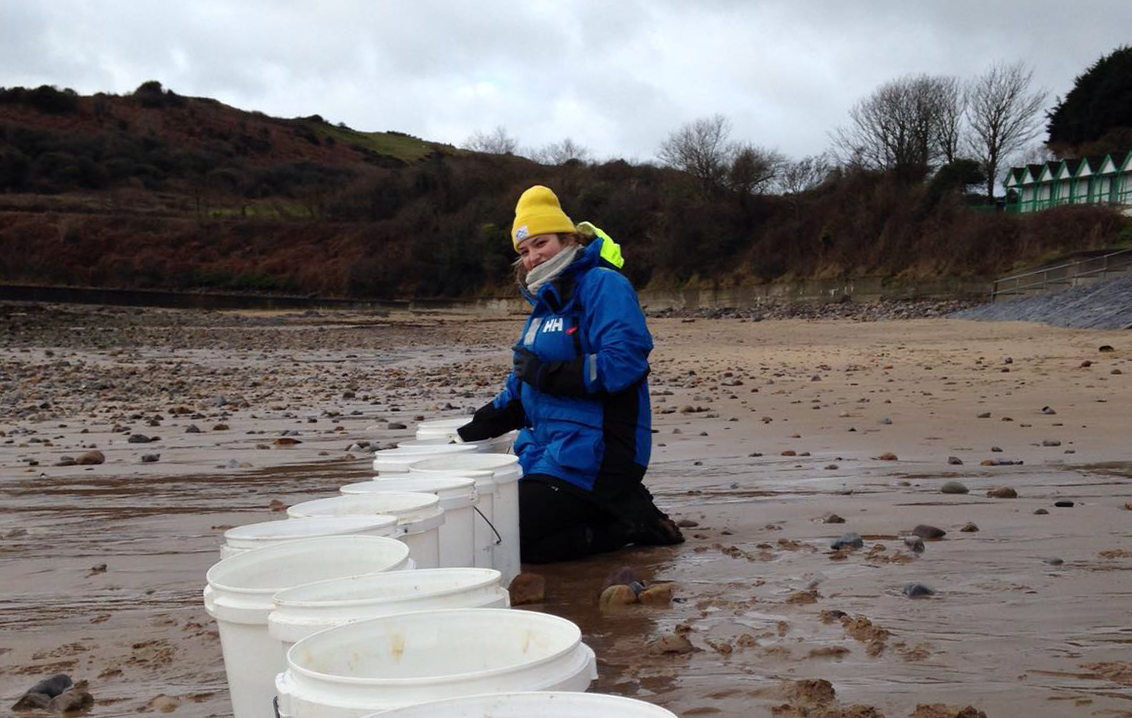Story
PML researchers educating from the Arctic
1 May 2019
AXA XL Arctic Live is launched for the sixth year running, livestreaming scientists’ field work on microplastics and ocean acidification into classrooms around the world and highlighting the impact on oceans and polar regions.

This free educational event, running from 2nd – 8th May, offers thousands of young people a portal through which to explore the issues and news headlines about climate change through direct engagement with leading scientists. With climate-striking students demanding, among a list of actions, more relevant science in schools, this Encounter Edu event is a great way for scientists and school children to engage with each other. Polar regions are changing rapidly, with the Arctic experiencing the highest levels of warming of any area on the planet, and the Arctic Ocean is acidifying faster now than at any time in the past 300 million years.
The science is led by Plymouth Marine Laboratory’s Dr Helen Findlay, focusing on ocean acidification, and the University of Exeter’s Dr Ceri Lewis, who is gathering data to understand how much plastic is in the Arctic and its origins.
Ocean acidification, caused by increased levels of carbon dioxide in the atmosphere, is the subject of Dr Findlay’s research due to its impact on the growth and reproduction of sea creatures: “The polar oceans are acidifying faster than any other ocean,” said Dr Findlay. “Ocean acidification can subtly affect many animals but especially impact those that produce a calcium carbonate structure or shell, such as clams. To put it simply, more acidity makes it harder for these organisms to form shells and puts their long-term survival at risk.”
Hannah Green, PhD student with PML and the University of Exeter, will be presenting the acidification research from the UK’s Arctic Research Station on the high Arctic island of Spitsbergen. She said: “I'm excited to be able to join this fantastic research and engagement opportunity, giving me my first experience of the Arctic, and really looking forward to interacting with the schools to teach them about ocean acidification and the Arctic. This research could give me vital data to ground base my future modules.”
 Hannah Green, who will be presenting research on ocean acidification
Hannah Green, who will be presenting research on ocean acidification
The free interactive broadcasts will be hosted by Encounter Edu founder and polar educator, Jamie Buchanan-Dunlop. Participating viewers will be able to take part in Ask-Me-Anything sessions and Q&As with the scientists and the expedition team, and join live experiments illustrating the changes occurring in the Arctic. Encounter Edu’s live streaming education broadcasts have built tremendous new interest in the oceans among young learners with its programs reaching 4.6 million students in just over ten years.
“The earth is experiencing critical pressure due to climate change and the impact of lifestyles,” Buchanan-Dunlop said. “With over 40 per cent of the global population between the ages of ten and 24, building young people's empathy for and literacy of issues like ocean health and climate change will not only spark their curiosity but gives them vital knowledge to affect the global debate on these issues.”